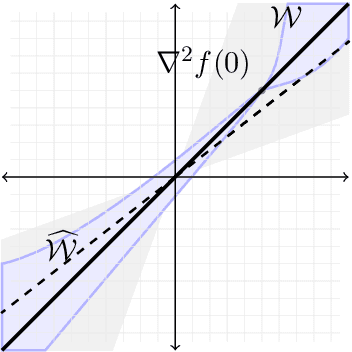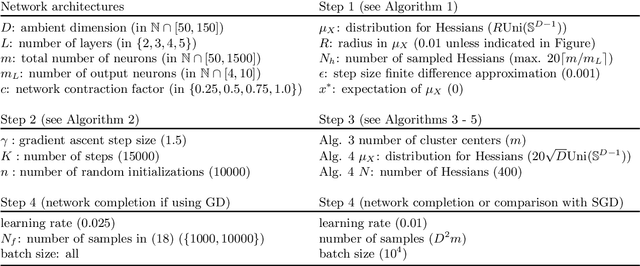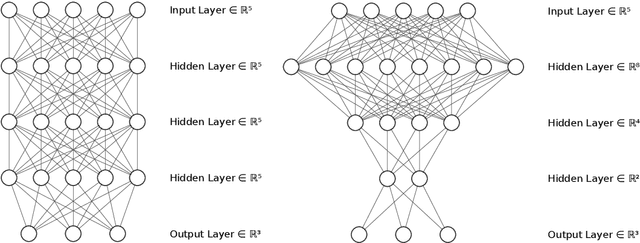Stable Recovery of Entangled Weights: Towards Robust Identification of Deep Neural Networks from Minimal Samples
Paper and Code
Jan 18, 2021



In this paper we approach the problem of unique and stable identifiability of generic deep artificial neural networks with pyramidal shape and smooth activation functions from a finite number of input-output samples. More specifically we introduce the so-called entangled weights, which compose weights of successive layers intertwined with suitable diagonal and invertible matrices depending on the activation functions and their shifts. We prove that entangled weights are completely and stably approximated by an efficient and robust algorithm as soon as $\mathcal O(D^2 \times m)$ nonadaptive input-output samples of the network are collected, where $D$ is the input dimension and $m$ is the number of neurons of the network. Moreover, we empirically observe that the approach applies to networks with up to $\mathcal O(D \times m_L)$ neurons, where $m_L$ is the number of output neurons at layer $L$. Provided knowledge of layer assignments of entangled weights and of remaining scaling and shift parameters, which may be further heuristically obtained by least squares, the entangled weights identify the network completely and uniquely. To highlight the relevance of the theoretical result of stable recovery of entangled weights, we present numerical experiments, which demonstrate that multilayered networks with generic weights can be robustly identified and therefore uniformly approximated by the presented algorithmic pipeline. In contrast backpropagation cannot generalize stably very well in this setting, being always limited by relatively large uniform error. In terms of practical impact, our study shows that we can relate input-output information uniquely and stably to network parameters, providing a form of explainability. Moreover, our method paves the way for compression of overparametrized networks and for the training of minimal complexity networks.
 Add to Chrome
Add to Chrome Add to Firefox
Add to Firefox Add to Edge
Add to Edge